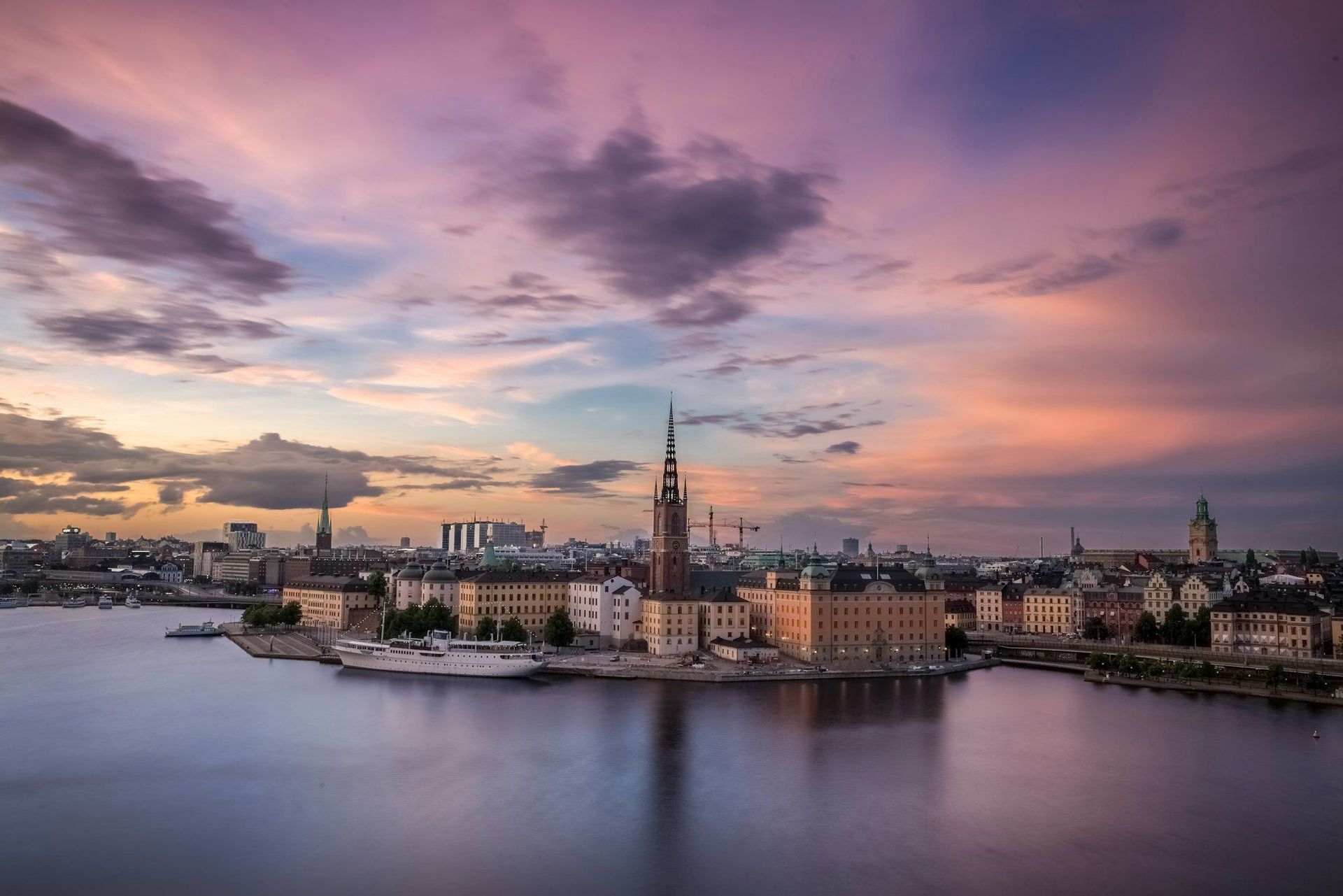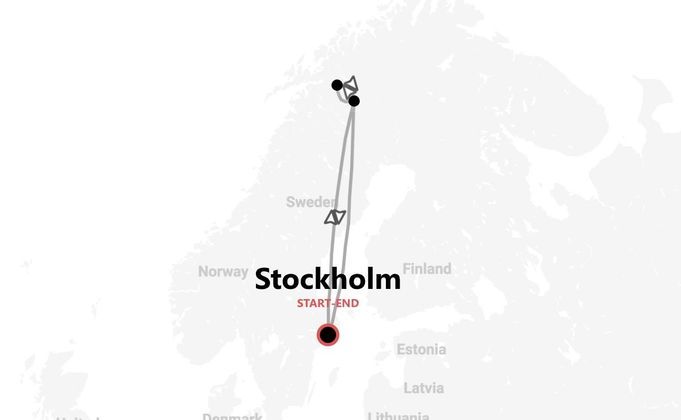
Group trips to Sweden
Our organized trips to Sweden
Often celebrated for its sleek design and innovation, Sweden truly unveils a deeper, more captivating essence, blending millennia-old traditions with a vibrant, modern pulse. From the majestic urban archipelago of Stockholm, where ancient cobblestones meet contemporary flair, to the ethereal dance of the Northern Lights above Abisko National Park's pristine Arctic landscapes, this is a destination for the discerning explorer who craves both natural grandeur and sophisticated culture. Discover UNESCO World Heritage sites like the medieval city of Visby, or simply immerse yourself in the serene beauty of its countless lakes and forests, finding adventure and inspiration at every turn in this land of captivating contrasts.
FAQs about Sweden
If you are a UK citizen, to find out the entry requirements for Sweden, you can check this informational page from our partner Sherpa. If you need a visa, you can apply for it through Sherpa. If you are not a UK citizen, you can still use Sherpa by changing the nationality in the 'Passport' section.
Before traveling, always remember to check the government website of your country of origin for updates on the entry requirements for Sweden – you wouldn’t want to stay home due to a bureaucratic detail!
- UK residents: review the FCDO Travel Advice.
- US residents: consult the US Department of State Travel Advice.
- Other residents: refer to your government or local consulate's travel advice.
Sweden operates on Central European Time (CET), which is UTC+1. During daylight saving time, which typically runs from the last Sunday in March to the last Sunday in October, Sweden switches to Central European Summer Time (CEST), which is UTC+2.
- If it is 12pm in the UK, it will be 1pm in Sweden.
- If it is 12pm on the East Coast of the USA, it will be 6pm in Sweden.
Make sure to adjust your watch during daylight saving time!
Sweden uses the Swedish Krona (SEK) as its currency. As of the latest rates:
- 1 GBP is approximately 13 SEK
- 1 USD is about 11 SEK
- 1 EUR is roughly 11.5 SEK
You can exchange currency at banks, exchange bureaus, or withdraw directly from ATMs upon arrival.
In Sweden, most places accept credit and debit cards, and they're widely used, even for small transactions. Mobile payment options like Swish are also popular among locals. While cash is less common, it's still useful to have some on hand for rare occasions. We suggest you ensure your cards are enabled for international use and consider carrying a backup card. If you need cash, ATMs are available in most cities and towns.
Tipping in Sweden is not obligatory, but it is appreciated for good service. At restaurants, rounding up the bill or leaving around 5-10 percent as a tip is a nice gesture. In taxis, you can round up to the nearest kronor or add a small amount. For other services like hairdressers or hotel staff, tipping is not expected but welcomed if you feel you received exceptional service. Always check the bill first, as some places might include a service charge.
In Sweden, internet access is generally excellent, with widespread availability of fast Wi-Fi in hotels, cafes, and public spaces. If you have a European SIM card, you can use roaming without extra charges. If you're from outside Europe, consider buying a local SIM or an e-SIM data plan. Providers like Telia, Telenor, and Tre offer good coverage and various data packages. Wi-Fi is usually free and reliable, so you should have no trouble staying connected.
In Sweden, the official language is Swedish. It's helpful to know a few colloquial expressions you might hear or use while traveling:
- Hello: Hej
- Thank you: Tack
- Please: Snälla
- Excuse me: Ursäkta mig
- Yes: Ja
- No: Nej
Most Swedes speak English fluently, so communication should be easy.
In Sweden, the plugs are Type C and Type F, with a voltage of 230V and a frequency of 50Hz. If you're coming from a country with different plug types, you should bring a universal adapter. Make sure your devices are compatible with the voltage to avoid any issues.
The main religion in Sweden is Christianity, specifically the Lutheran branch, due to the historical influence of the Church of Sweden. However, Sweden is known for its high level of secularism, and many Swedes identify as non-religious. Important religious holidays include Christmas and Easter, which are widely celebrated. In recent years, there is also a noticeable presence of Islam, Catholicism, and other Christian denominations due to immigration and cultural diversity.
For a trip to Sweden, you'll want to be prepared for a variety of weather conditions depending on the season and region. Here's a list of essentials to pack in your backpack:
-
Clothing:
- Warm jacket
- Sweaters or fleece
- T-shirts
- Lightweight raincoat
- Scarf and gloves for colder months
-
Shoes:
- Comfortable walking shoes
- Waterproof boots
- Casual shoes
-
Accessories and Technology:
- Universal adapter
- Power bank
- Camera or smartphone
- Travel guide or map
-
Toiletries and Medication:
- Travel-sized toiletries
- Sunscreen
- Insect repellent
- Basic first-aid kit
- Common travel medication like pain relievers and motion sickness pills
Swedish weather can be unpredictable, so layering is key. Enjoy your time exploring Sweden.
Sweden's weather varies quite a bit depending on the region and season. Here's a breakdown:
- Southern Sweden: Mild winters and warm summers. Best time to visit is late spring to early autumn.
- Central Sweden: Cold winters with snow, summers are mild. Visit between May and September for warmer weather.
- Northern Sweden: Very cold winters with heavy snow, short cool summers. Best to visit in summer months, June to August, for outdoor activities.
Keep in mind that daylight varies greatly, with long summer days and short winter ones.

